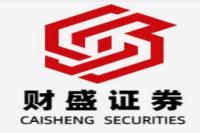南向资金汹涌!阿里巴巴、中芯国际领跑港股,解读投资机遇与风险
元描述: 深度解析南向资金今日净买入20.66亿港元背后的投资逻辑,阿里巴巴、中芯国际、小米集团-W强势领涨,美团-W、香港交易所、中国平安遭净卖出,资深分析师带你解读港股投资机遇与风险,附FAQ及专家见解。
Are you ready for a deep dive into the exciting world of Hong Kong stock market investment? Today's market buzz is all about the significant influx of southbound funds, a clear sign that something big is happening. A whopping 20.66 billion Hong Kong dollars flowed south, injecting a shot of adrenaline into the market. But it wasn't a uniform surge. Some giants soared, while others took a dive. This isn't just a collection of numbers; it’s a compelling story unfolding before our eyes, a narrative woven with threads of economic trends, investor sentiment, and the ever-present dance of risk and reward. We’ll unravel the mystery behind these movements, examining the key players and decoding the potential implications for both seasoned investors and those just starting their investment journey. This isn’t just another market report; it's a strategic guide designed to empower you with the insights needed to navigate the dynamic Hong Kong stock market. We'll delve into the reasons behind the surge in southbound funds, analyze the specific performance of leading stocks, and explore the potential long-term implications for different sectors. Prepare to gain a competitive edge, understanding not only what happened but why it happened, and what it means for your investment strategy. Get ready to unlock the secrets of the Hong Kong stock market!
南向资金今日净买入分析
Today's significant net inflow of 20.66 billion Hong Kong dollars from southbound funds into the Hong Kong stock market paints a fascinating picture. While the overall influx is positive, the story is far from homogenous. Let's break down the key players and their performances:
Top Performers:
-
Alibaba-W (9988.HK): A staggering 36.25 billion HKD net buy-in. This massive influx reflects strong investor confidence in Alibaba's growth prospects, potentially driven by positive news regarding its future business plans or a general bullish sentiment towards the tech sector. It's a bold statement from the market.
-
SMIC (0981.HK): With a net buy-in of 18.08 billion HKD, Semiconductor Manufacturing International Corporation (SMIC) continues to attract significant investment. This suggests ongoing optimism within the global semiconductor industry despite ongoing geopolitical uncertainties.
-
Xiaomi Group-W (1810.HK): Xiaomi's 8.33 billion HKD net buy-in signals continued investor interest in the consumer electronics giant. This could be driven by strong sales figures, new product launches, or a positive outlook on the broader Asian consumer market.
Lagging Stocks:
-
Meituan-W (3690.HK): The 32.85 billion HKD net sell-off is a significant development. This might reflect concerns about the company's regulatory environment, slowing growth, or increased competition within the online services sector. It's a clear warning sign for investors to carefully reassess their positions.
-
Hong Kong Exchanges and Clearing (0388.HK): A net sell-off of 23.84 billion HKD suggests investors might be taking profits or anticipating potential headwinds for the financial sector.
-
China Ping An Insurance (2318.HK): The 7.19 billion HKD net sell-off could indicate investors shifting their focus to other sectors or expressing concerns about the insurance industry’s future growth prospects.
This data showcases a complex interplay of factors influencing investor decisions. It's not simply a matter of one sector outperforming another – it's a nuanced reflection of market sentiment, individual company performance, and macroeconomic trends.
阿里巴巴(Alibaba) 的投资机遇与风险
Alibaba's massive net buy-in is undoubtedly the headline story. This tech giant has always been a magnet for investors, but the scale of today's inflow is remarkable. It's crucial to look beyond the headline numbers and understand the potential catalysts driving this surge.
Potential Opportunities:
-
Strong Fundamentals: Alibaba’s vast e-commerce ecosystem, cloud computing division (Alibaba Cloud), and digital media platforms continue to generate substantial revenue and growth.
-
Regulatory Easing: Any positive developments regarding regulatory changes in China could significantly impact Alibaba's stock price. Investors are likely anticipating such positive news.
-
Long-Term Growth Potential: Despite short-term headwinds, Alibaba’s long-term growth potential in the Chinese and global markets remains substantial.
Potential Risks:
-
Geopolitical Uncertainty: Global geopolitical events and US-China relations always cast a shadow over Chinese tech stocks.
-
Regulatory Scrutiny: The regulatory landscape in China remains complex and unpredictable, potentially impacting Alibaba's future operations.
-
Competition: The Chinese tech sector is intensely competitive, with emerging players constantly challenging Alibaba's dominance in various market segments.
Investing in Alibaba, like any stock, involves careful consideration of both opportunities and risks. Due diligence and a long-term investment horizon are crucial.
宏观经济因素的影响
It's impossible to discuss the movement of southbound funds without considering broader macroeconomic factors. Interest rate changes, global economic growth forecasts, and investor sentiment towards emerging markets all play a significant role. A robust global economy typically fuels investment into emerging markets like Hong Kong, while uncertainty tends to lead to capital flight. Analyzing global economic indicators alongside individual company performance is vital for accurate market forecasting. Think of it like this: the overall health of the global economy creates the wind, while the individual company performance is the sail. Both are necessary for successful navigation.
常见问题解答 (FAQ)
Q1: What are southbound funds?
A1: Southbound funds refer to the capital flowing from mainland China into the Hong Kong stock market. This investment is primarily facilitated through the Stock Connect programs, allowing mainland investors to directly purchase Hong Kong-listed stocks.
Q2: Why are investors so interested in Hong Kong stocks?
A2: Hong Kong offers a diverse range of companies, including many multinational corporations and leading Chinese companies. It's a relatively open market with lower barriers to entry for mainland investors.
Q3: What are the risks associated with investing in Hong Kong stocks?
A3: Risks include market volatility, geopolitical uncertainties (particularly those impacting China), and currency fluctuations. Diversification and thorough due diligence are crucial risk mitigation strategies.
Q4: How can I access the Hong Kong stock market?
A4: You can access the Hong Kong stock market through brokerage firms that offer access to the Hong Kong Exchanges and Clearing (HKEX). Ensure your chosen broker is reputable and compliant with all relevant regulations.
Q5: What are the best resources for tracking Southbound funds?
A5: Reliable financial news websites, brokerage platforms, and dedicated market data providers offer comprehensive information on southbound funds flows and market activity.
Q6: Is now a good time to invest in the Hong Kong stock market?
A6: Market timing is notoriously difficult. The current market conditions offer both opportunities and risks. Conduct thorough research, consider your risk tolerance, and consult with a qualified financial advisor before making any investment decisions.
结论
The surge in southbound funds today highlights the dynamism and complexity of the Hong Kong stock market. While Alibaba, SMIC, and Xiaomi attracted significant investment, others experienced substantial sell-offs. This underscores the importance of in-depth analysis, considering both macroeconomic factors and individual company performance. Remember, investing involves risk, and it's crucial to conduct thorough research and understand your risk tolerance before committing capital. Stay informed, stay vigilant, and happy investing!



